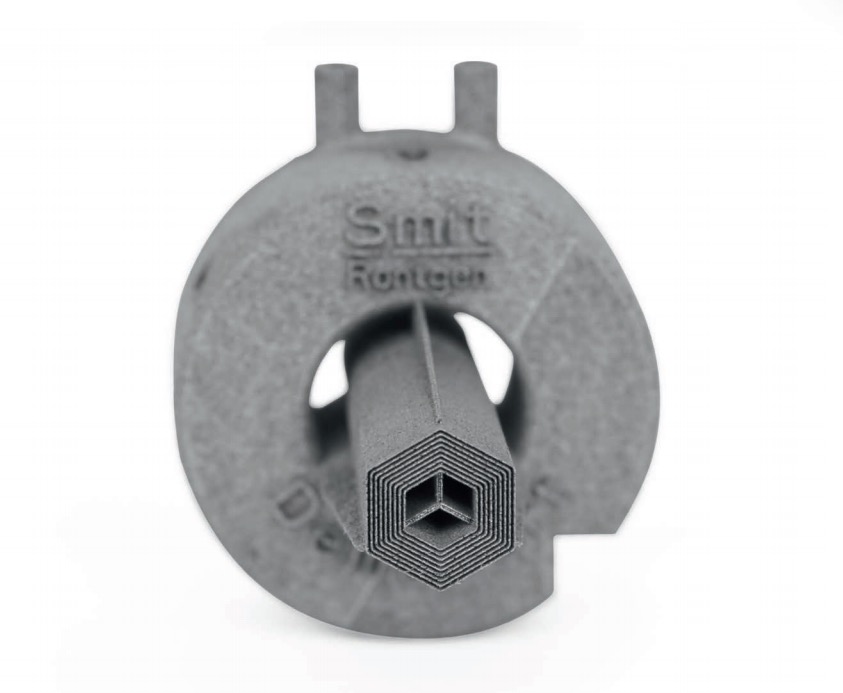
If you want 3D printed metal parts, you buy or use a 3D metal printer, correct? Not always, it turns out.
There are a number of 3D metal printer options now available in the market, all of which have particular characteristics and capabilities. These machine specifications form an envelope into which your needs must fit, if you wish to make use of those machines.
The standards 3D metal printers adhere to are critically important because metal printing clients require consistent print quality as the parts are often used in production applications requiring certifications of various kinds.
But what if you need a metal part that doesn’t fit into the envelope provided by a given 3D metal printer? What if you cannot find a 3D metal printer that can do what you need?
Enter Smit Röntgen, a Netherlands-based Philips company that specializes in extending that possibility envelope.
For example, they’ve taken a standard EOS M-series 3D metal printer and modified it to print tungsten parts at 3,400C. This enables the production of unusual components for speciality applications, such as 3D printed tungsten walls to focus beams in a 3D scanner.
We were told the company has experimented with a number of other materials and has had some success. Molybdenum is printable, apparently but is “not as good” as tungsten. They’ve also experimented with lead, but found it is not really printable due to its flexibility.
The company started in 2007 and has been growing in recent years, particularly since 2015 when companies began to “discover” 3D printing in metal. While Smit Röntgen’s market is surely a niche, it is an important one and they are expanding.
They’ve obtained long-term contracts to produce items for several clients, particularly in medical markets. This has enable their growth and currently they are focusing on ramping up operations, which includes looking at new production platforms for unusual metal 3D printing approaches.
If you have a need to 3D print a non-standard metal, you might want to call on Smit Röntgen.
Via Smit Röntgen

